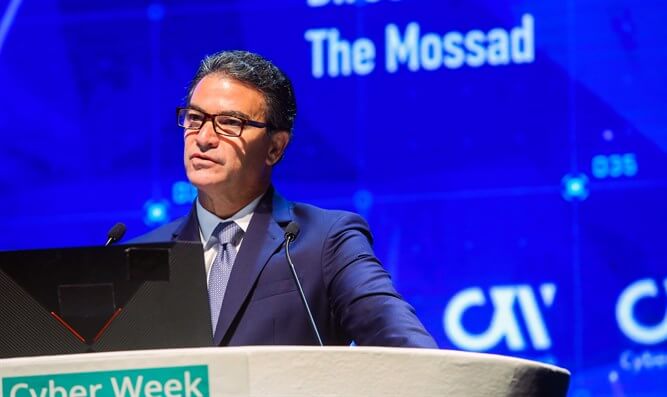On Tuesday, Israel’s foreign intelligence service chief Yossi Cohen visited Abu Dhabi for talks with the United Arab Emirates’ (UAE) national security advisor, Sheikh Tahnoun bin Zayed Al-Nahyan. The Mossad spy agency head visited the Gulf magnate only a few days after the countries entered into an unprecedented agreement brokered by the United States to normalize historically strained ties between the two states. Cohen is the first Israeli official to officially visit the UAE.
According to the state-run Emirates News Agency, “The two sides discussed prospects for cooperation in the fields of security as well as exchanged points of view on regional developments and on issues of common interest,” including a joint effort to contain the current pandemic. Last week, Israeli Prime Minister Benjamin Netanyahu had called Cohen to express his gratitude for the Mossad’s role “in developing the ties with the Gulf states over the years, which assisted in bringing the peace treaty to fruition”. On the other hand, Netanyahu has said that his country would oppose any F-35 war aircraft sales between the US and the UAE, stressing on the need for Israel to maintain its regional military superiority.
See also: UAE, Israel Sign ‘Historic’ US-Brokered Deal to Normalize Relations
The normalization of ties between the UAE and Israel has been met with anger and rejection from Palestinian leadership. Most recently, tensions in the Gaza strip that have risen in the past few weeks between Israeli forces and the Islamic militant group Hamas have left more than 2 million residents in the area with only 4 hours of electricity per day to survive on after Tel Aviv cut off the territory’s main power and fuel supply in response to arson balloon attacks that have razed farmland at the border. For Palestine, Arab hostility towards Israel has been a crucial part of its pressure campaign on the Jewish state.
The UAE is the only Arab Gulf country to strike such an accord with Israel, and the third Arab country after Jordan and Egypt to have diplomatic relations with the Jewish state. Saudi Arabia, however, has maintained radio silence over the deal. Local officials in Riyadh have insinuated that the Saudis are unlikely to follow the UAE immediately, although there does seem to be a shift in tides towards Israel among other Gulf nations.
Simultaneously on Monday, Oman’s top diplomat, Yusuf bin Alawi bin Abdullah, spoke over the phone with his Israeli counterpart Gabi Ashkenazi to discuss recent developments in the region. The next day, Sultan Haitham bin Tariq al Said issued 28 decrees reorganizing ministries and renaming them, including a cabinet shakeup that named new ministers for foreign affairs and finance, replacing bin Alawi. The Sultanate has been a crucial interlocutor between Iran and the West and has also supported the development of Israeli-Emirati ties. A governmental reshuffle has been Haitham’s long-standing goal despite regional tensions, and although it may not affect the state’s positioning in the region it is worth noting that bin Alawi, who has been a key player in establishing the Sultanate’s foreign relations, will no longer remain at its helm.

